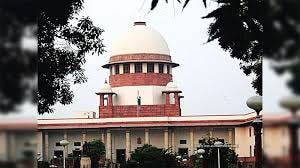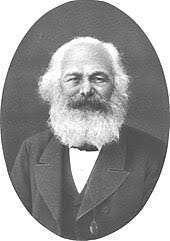The Origins and Impact of Section 295(A) of the Indian Penal Code: A Call for Reform
Why We Need Freethinkers and Open Debate to Evolve as a Society
"Whoever, with deliberate and malicious intention of outraging the religious feelings of any class of [citizens of India], [by words, either spoken or written, or by signs or by visible representations or otherwise], insults or attempts to insult the religion or the religious beliefs of that class, shall be punished with imprisonment of either description for a term which may extend to [three years], or with fine, or with both." - SECTION 295(A)
Section 295(A) of the Indian Penal Code (IPC) criminalizes "deliberate and malicious acts, intended to outrage religious feelings of any class by insulting its religion or religious beliefs." Enacted in 1927, this law aims to maintain communal harmony by punishing those who intentionally provoke religious sentiments. However, its broad and vague language has led to misuse and suppression of free thought and criticism. This article delves into the origins and impact of Section 295(A) and argues for its modification to foster a more open and progressive society.
Origins of Section 295(A)
The introduction of Section 295(A) was a direct response to the communal tensions of the 1920s in colonial India. The immediate catalyst was the publication of the pamphlet Rangeela Rasool by Mahashe Rajpal, which was seen as an insult to the Prophet Muhammad and led to widespread unrest. However, the background to this was a series of publications by Muslim authors that mocked Hindu deities, particularly Sita Devi, which did not result in similar legal repercussions or unrest.
When “Rangeela Rasool” was initially challenged in court, the judiciary did not find the book offensive. Despite the court's decision, continuous protests by the Muslim community exerted pressure on the British administration. The situation escalated further, leading to the enactment of Section 295(A). Tragically, Mahashe Rajpal was later murdered by Ilm-ud-din, an Islamist extremist who was subsequently celebrated as a hero by many in the Muslim community. His funeral was attended by thousands, and he was commemorated as a martyr.. This tragic incident underscored the need for legal provisions to manage communal sensitivities, leading to the formal establishment of Section 295(A).
This disparity in reactions highlights a broader issue of tolerance and freedom of expression. While the publication mocking Hindu deities did not incite violence, the criticism of Islamic figures led to significant upheaval, prompting the colonial government to intervene. This historical context raises important questions about the balance between protecting religious sentiments and upholding free speech.
Impact of Section 295(A)
Over the years, Section 295(A) has had a profound impact on freedom of expression in India. While intended to protect religious sentiments and maintain public order, it has often been used to stifle legitimate criticism and debate. Several writers, artists, and intellectuals have faced legal action under this section for expressing views that some groups found offensive.
Academics and scholars have been targeted for their research and writings that critically analyze religious beliefs and practices.
The threat of legal action under Section 295(A) has created a chilling effect, discouraging people from engaging in open and honest discussions about religion.
The Need for Modification
“The Criticism of Religion is the beginning of all Criticism”
- Karl Marx
While protecting religious sentiments is important in a diverse society like India, it is equally crucial to ensure that this protection does not come at the cost of stifling free thought and debate. Freethinkers play a vital role in challenging outdated beliefs and practices, promoting scientific temper, and fostering social progress.
Criticism of religion can lead to healthy debates and discussions, which are essential for the evolution of societal values. By allowing open criticism, society can tackle regressive beliefs and practices.
The vague and broad language of Section 295(A) makes it susceptible to misuse by individuals and groups to settle personal scores or suppress dissent. Clearer definitions and stricter criteria for what constitutes "deliberate and malicious" intent can prevent such misuse.
The right to freedom of speech and expression is enshrined in the Indian Constitution. Any law that restricts this right must be carefully balanced to ensure that it does not unduly infringe upon this fundamental freedom.
Proposed Reforms
To strike a balance between protecting religious sentiments and ensuring free speech, Section 295(A) should be reformed in the following ways:
Clearly define what constitutes "deliberate and malicious" acts to prevent arbitrary application of the law.
Define clear criteria for what constitutes "portraying gods in a very offensive way." This can include direct insults, obscene depictions, or statements designed to vilify or dehumanize religious figures
Ensure that factual information, even if critical, is protected. This means that quoting religious texts, historical events, or scholarly analysis, even if they are unflattering, should not be penalized
Implement safeguards to prevent the misuse of this section for personal vendettas or to stifle legitimate expression. This could include a preliminary review by a judicial body before FIRs are registered under this section
In conclusion, while Section 295(A) of the IPC was enacted with the noble intention of preventing communal violence, its broad and vague language has often led to the suppression of free thought and criticism. The new Bharatiya Nyaya Sanhita, 2023, renumbers this provision to Section 299, but its essence remains the same. To foster a more open and progressive society, it is crucial to modify this law to protect the rights of freethinkers and promote rational debate. Only by encouraging open discussion and criticism can we challenge regressive beliefs and practices and move towards a more enlightened and harmonious society.




